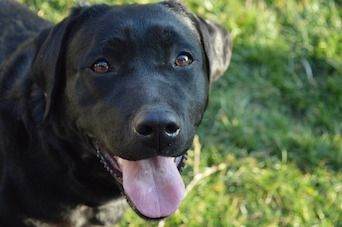Purina Launches Supplement for Canine Anxiety Management
The new product works at the gut level to help manage anxiety in dogs.

Veterinarians have many options when it comes to helping dog owners manage their pets’ anxiety. This week, Purina Pro Plan Veterinary Diets announced the launch of a new probiotic product to add to the armamentarium.
Calming Care contains Bifidobacterium longum (BL999), which works at the gut-brain axis to ameliorate behavioral signs related to separation anxiety, noise phobias, and other manifestations of anxiety, including hypervigilance, excessive vocalization, pacing, panting, compulsive licking, trembling, and house soiling.
“In searching for a new way to address the problem of canine anxiety, we focused on the bi-directional communication known as the gut-brain axis—a connection believed to be influenced by the gut microbiota,” said Purina research scientist Ragen T.S. McGowan, PhD. “Scientific evidence has shown that manipulating gut bacteria through probiotic administration can have a positive influence on anxious behavior in both rats and humans.”1
In a blinded, placebo-controlled, crossover study at the Purina Pet Care Center, investigators evaluated the effects of administering BL999 to 24 Labrador retrievers who demonstrated anxious behaviors. Dogs were assessed for both behavioral and physiologic changes during the 15-week study.
RELATED:
- FDA Approves Pexion for Canine Noise Aversion
- Purina Launches Canned Food for Canine Allergies
According to Dr. McGowan, 90% of the study’s dogs showed improvement in displaying anxious behaviors such as excessive vocalization, jumping, pacing, and spinning. Physiologic evidence of decreased anxiety included “reduced salivary cortisol concentration, decreases in heart rate and increases in heart rate variability in response to various stimuli,” she said.”2
Available by prescription only, Calming Care is conveniently packaged in sachets for once-daily administration and has excellent palatability. Maintenance of calm behavior requires ongoing use.
“While anxiety is often thought of as a psychological condition, its effect on a dog’s physiologic state is real,” Dr. McGowan concluded. “By addressing this condition at a gut level, veterinarians can offer clients new hope for helping anxious dogs achieve peace of mind.”
References
- Messaoudi M, Lalonde R, Violle N, et al. Assessment of Psychotropic-Like Properties of a Probiotic Formulation (Lactobacillus helveticus ROO52 and Bifidobacterium longum R0175) in Rats and Human Subjects. Brit J Nutr. 2011;105:755-764.
- McGowan, R. T. S. (2016). “Oiling the brain” or “Cultivating the gut”: Impact of diet on anxious behavior in dogs. Proceedings of the Nestlé Purina Companion Animal Nutrition Summit, March 31-April 2, Florida, 91-97.
Episode 67: Choosing trusted supplements
October 20th 2021In this episode of The Vet Blast Podcast, Dr Adam Christman chats with Dr Janice Huntingford about the latest insights into selecting the best supplements for your patients, including the importance of recommending and utilizing products that have a substantial amount of science and research behind them. (Sponsored by Vetoquinol)
Listen